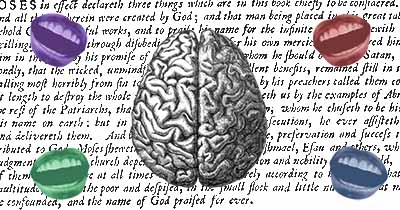A logical fallacy is a flaw in reasoning that makes an argument misleading or unconvincing. It often appears to be a sound argument due to its structure or emotional appeal , but upon closer examination, it lacks proper support or relies on faulty connections between the evidence and the conclusion.
Logical fallacies can be deceptive because they may seem logical on the surface, but they contain errors or misleading information.
There are two main categories; informal fallacies, which involve errors in reasoning or relevance, and formal fallacies, which have flaws in their logical structure.
Logical fallacies are frequently used unintentionally due to poor reasoning or intentionally to persuade others through manipulation.
Understanding and identifying logical fallacies is crucial for critical thinking and evaluating the validity of arguments you encounter in various situations.
The term "logical fallacy" comes from the Latin word fallacia, which means "deception" or "trick." It's been around for centuries and is deeply rooted in the study of logic and rhetoric—disciplines concerned with clear thinking, effective communication, and the art of persuasion.
The concept dates back to Ancient Greece, where philosophers like Aristotle were the first to systematically analyze faulty reasoning. In his work Sophistical Refutations, Aristotle identified and categorized various types of fallacies, labeling them as deceptive arguments that fail to follow the rules of logic. These were often used by sophists, skilled debaters of the time who prioritized winning arguments over truth. Aristotle, being the logic police of his era, wasn’t having any of that nonsense.
Over time, the study of logical fallacies evolved, especially during the Middle Ages, when scholars in Europe expanded on Aristotle's work as part of formal logic and rhetoric training. The term "logical fallacy" emerged as a way to describe reasoning errors that seem logical on the surface but crumble under closer examination.
Aristotle's Most Important Logical Fallacies
Aristotle identified several logical fallacies in his work Sophistical Refutations. Here are some of the most significant ones, grouped based on their characteristics:
Fallacies in Language (Linguistic Fallacies)
These arise from ambiguities or misuse of language:
- Equivocation: Using a word with multiple meanings in different parts of an argument, leading to confusion.
Example: "A feather is light. What is light cannot be dark. Therefore, a feather cannot be dark." - Amphiboly: Ambiguity caused by the structure or grammar of a sentence.
Example: "The doctor said he’d see the patient with one eye today." (Is the patient missing an eye, or is the doctor using just one eye?) - Composition and Division: Assuming what's true of a part is true of the whole (composition) or vice versa (division).
Example: "Each part of this machine is light; therefore, the machine as a whole is light."
Fallacies of Assumption
These occur when an argument rests on an unwarranted assumption:
- Begging the Question (Petitio Principii): Assuming the conclusion within the premise.
Example: "Reading is important because it's essential to be well-read." - False Cause (Post Hoc): Assuming a causal relationship based on mere sequence or correlation.
Example: "I wore my lucky socks, and we won the game. My socks caused the victory!"
Fallacies Not in Language (Logical Fallacies)
These involve errors in logical structure or reasoning:
- Non-Sequitur: Drawing a conclusion that doesn’t logically follow from the premises.
Example: "He’s wealthy because he drives an expensive car." - Ignoratio Elenchi (Irrelevant Conclusion): Presenting an argument that proves something irrelevant to the question at hand.
Example: Instead of proving that climate change is real, arguing about the cost of renewable energy.
Fallacies of Refutation (Eristical Fallacies)
These are often used in debates to win an argument rather than to seek truth:
- Ad Hominem: Attacking the person making the argument rather than the argument itself.
Example: "You're wrong because you're just a teenager." - Straw Man: Misrepresenting an opponent’s argument to make it easier to attack.
Example: "You want to regulate industries? So, you hate free markets and want socialism!"

